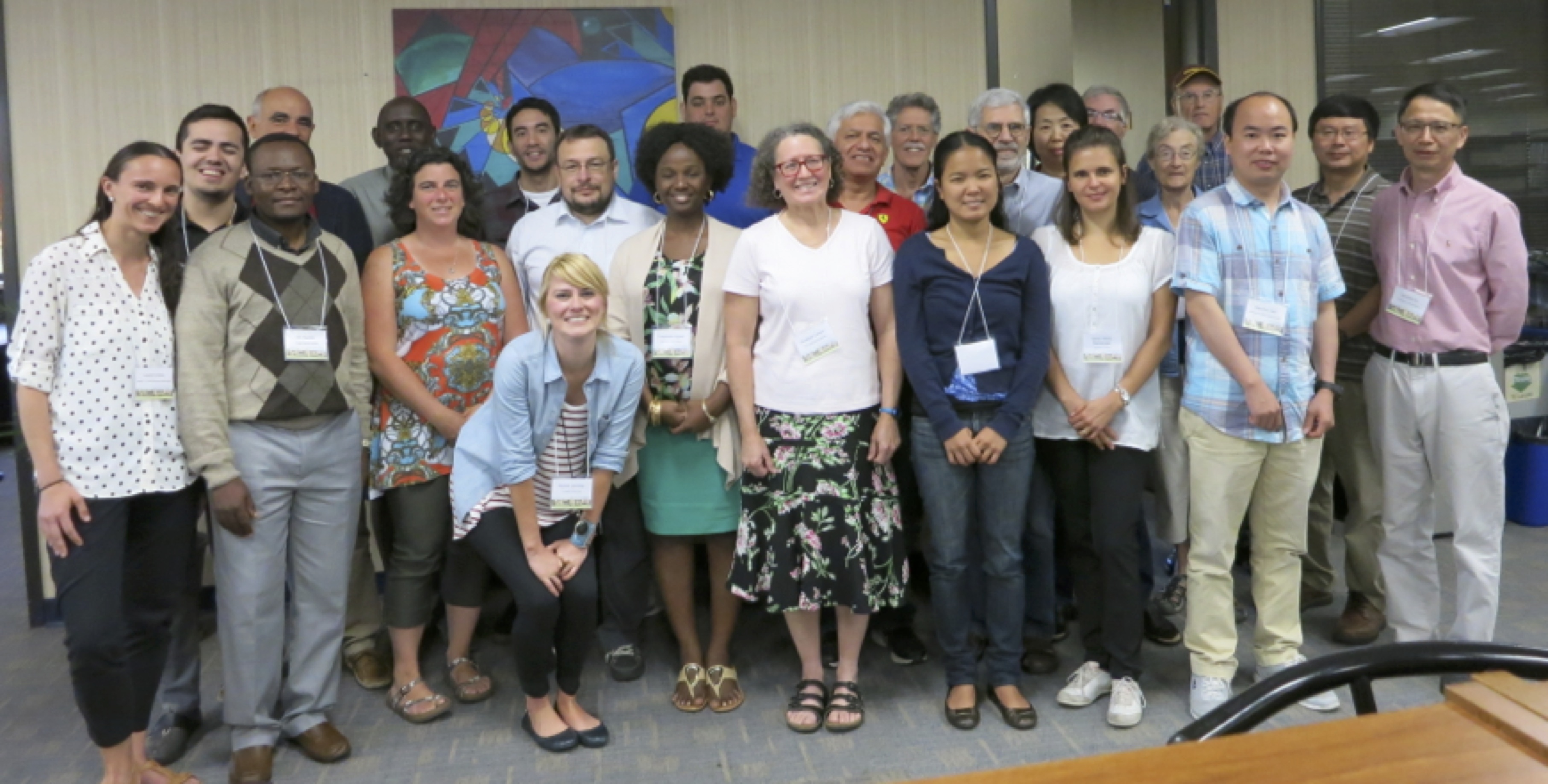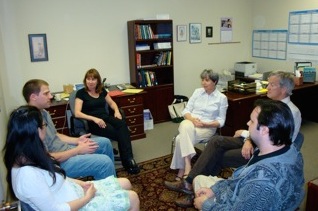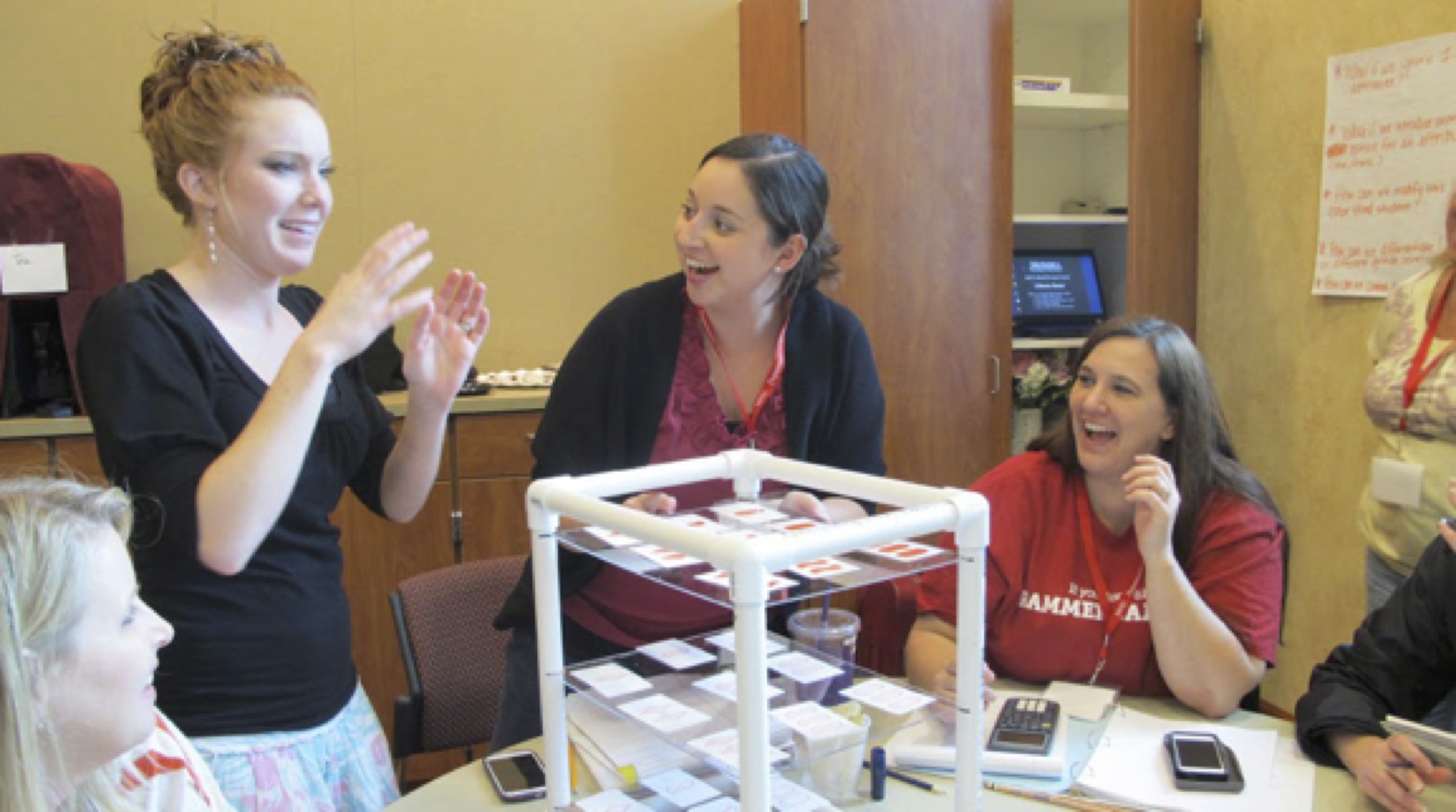Broadening participation in the mathematical sciences has been an integral part of AIM’s mission since its founding in 1994. AIM works to ensure inclusion of traditionally under-represented groups such as women, racial/ethnic minorities, persons with disabilities, faculty at schools that emphasize undergraduate education, and junior researchers. We emphasize full inclusion in standard AIM research workshops, SQuaREs and AIM Research Communities (ARCs), and also undertake special projects that support inclusion of diverse groups of mathematicians and enhance the mathematical workforce. AIM is a member of the Math Institutes Diversity Committee, which is co-chaired by Leslie Hogben, AIM Associate Director for Diversity, and is part of the Mathematical Sciences Institutes Diversity Initiative.
AIM’s impact on broadening participation goes beyond recruiting diverse participants. Not all types of participation are equally effective, especially for those who are not already well established. AIM has strategies to fully engage all participants in each workshop. As a result, participation in an AIM workshop can be much more stimulating to a participant’s research program that participation in an ordinary week-long conference.
Special Projects
Throughout its history, AIM has also supported a variety of special projects that enhance the mathematical workforce and contribute to the broader impacts of AIM’s work as an institute. These projects include Research Experiences for Undergraduate Faculty (REUF), a program for undergraduate faculty who want to mentor undergraduate students in research, started in 2008 and now a partnership with ICERM; and Math Teachers’ Circle (MTC), a national outreach program connecting K-12 mathematics teachers with research mathematicians, started in 2006.
Diversity Demographic Data from Annual Reports
Below we present data from AIM’s annual reports to NSF for DMS 1929334 (Mathematical Sciences Research Institutes), organized by year. For each year, in Table 1 we present the demographic data for all participants in all activities supported by this grant, together with percentages. We then present data separately for research Workshops, SQuaREs, and AIM Research Communities in Tables 2, 3, 4. AIM also undertakes initiatives that support inclusion of diverse groups of mathematicians and enhance the mathematical workforce and infrastructure. Since special workshops and programs are often significantly more diverse and are certainly more varied, we report data for these workshops and programs separately in Table 5. If there no events for a particular table in a given year, that table is omitted. Note that to be included in this data, a participant received a payment funded by this grant, and activities supported by other grants to AIM are not included here.
Notes on the demographic categories for the data in Tables 1, 2, 3, 4, and 5 (if present):
Women: The percentage is determined by the number who self-identify as female or woman among those who responded
Genderqueer/nonbinary: The percentage is determined by the number who self-identify as genderqueer or nonbinary among those who responded
UR genders: Combines women and genderqueer/nonbinary
UR race: People who self-identify as a member of one or more of the following groups are counted in under-represented race: Black, Native American, Alaska Native, and Native Hawaiian/Pacific Islander
UR ethnicity: People who self-identify as Hispanic/Latinx are counted in under-represented ethnicity
UR race/ethnicity: Combines under-represented race and ethnicity
Junior: A junior participant who has received the PhD in the past 5 years or not yet received it
Percentages are determined by those who self-identified in the category among respondents. Those who declined to answer a particular question are included among the number who responded to the survey, so the true percentage in each category is likely slightly higher than the reported percentage
NDMD: An NDMD institution is a college or university that is on one of the lists of ‘Bachelors’ or ‘Masters’ provided by the AMS http://www.ams.org/profession/data/annual-survey/groups. An NDMD faculty member is a faculty member of any department at an NDMD institution. The percentage of NDMD faculty is determined by the number of faculty at NDMD institutions among participants who are US based. Since ‘Primarily Undergraduate Institution (PUI)’ has a technical meaning for NSF and since to the best of our knowledge there is no list available of PUIs, we use being at a Non-Doctoral Mathematics Department (NDMD) to measure the inclusion of PUI faculty
US-based: A US-based participant listed a US institution. The percentage of US-based particpants uses total number of participants as the denominator, since US-based is determined for information supplied when registering.
Diversity Demographic Data from 2023-24 Annual Report
Table 1: Demographic diversity data for all participants covered by this report

Table 2: Diversity data for participants in AIM workshops

Table 3: Diversity data for participants in AIM SQuaREs

Table 4: Diversity data for participants in AIM Research Communities (ARCs)

Diversity Demographic Data from 2022-23 Annual Report
Table 1: Demographic diversity data for all participants covered by this report

Table 2: Diversity data for participants in AIM workshops

Table 3: Diversity data for participants in AIM SQuaREs

Table 4: Diversity data for participants in AIM Research Communities (ARCs)

Table 5: Diversity data for participants in special AIM Workshops

Diversity Demographic Data from 2021-22 Annual Report
Table 1: Demographic diversity data for all participants covered by this report

Table 2: Diversity data for participants in AIM workshops

Table 3: Diversity data for participants in AIM SQuaREs

Table 4: Diversity data for participants in AIM Research Communities (ARCs)

Diversity Demographic Data from 2020-21 Annual Report
Table 1: Demographic diversity data for all participants covered by this report

Table 2: Diversity data for participants in AIM workshops

Table 3: Diversity data for participants in AIM SQuaREs

Table 5: Diversity data for participants in special AIM workshops and summer school(ARCs)






